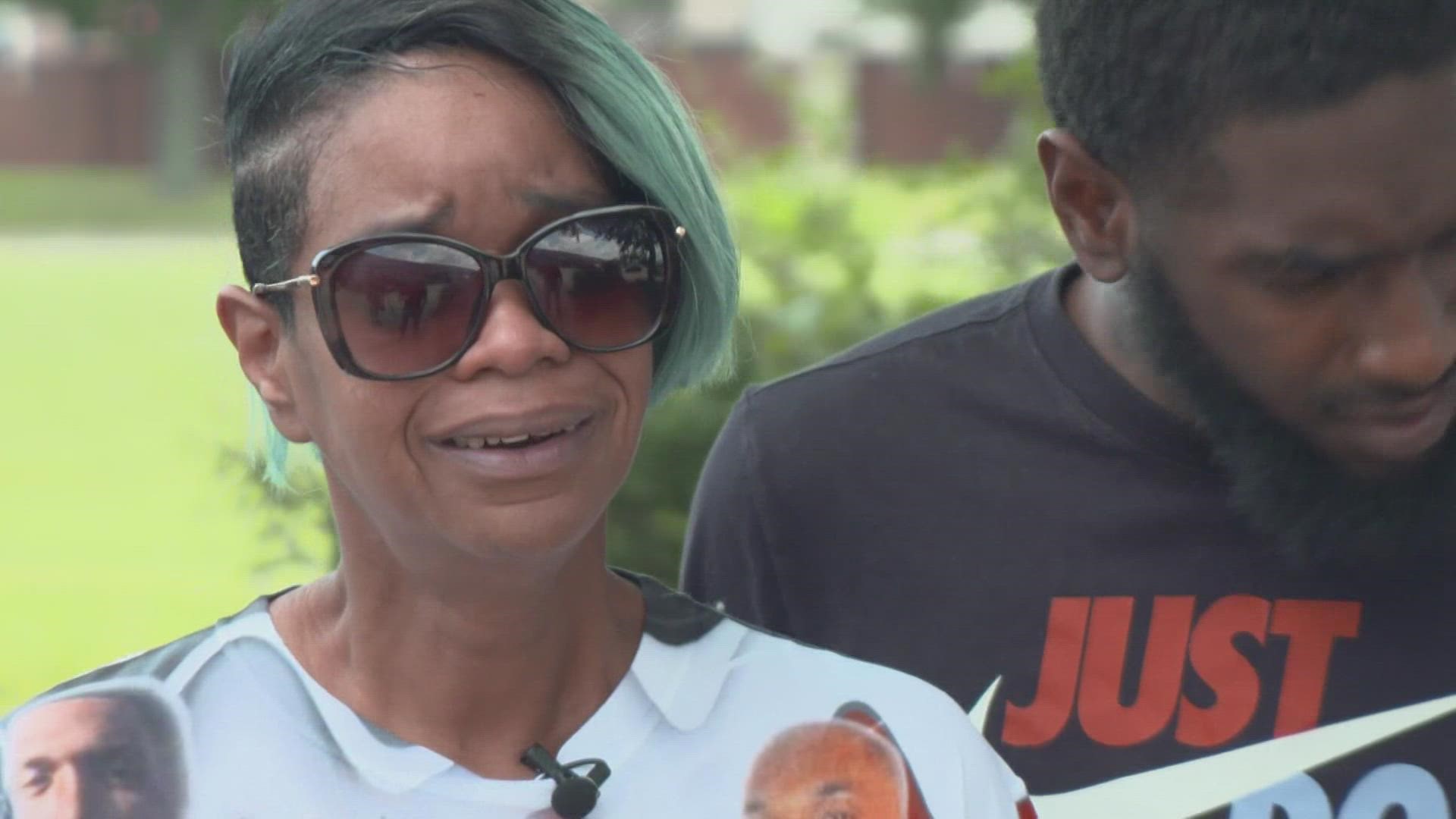FORT WORTH, Texas — LaQuita Murray goes back and forth between grief and fear.
On March 28, a week before Easter, her 25-year-old son Quiton Murray was shot and killed around 3:30 a.m. as he was driving home from a bar.
“Everything about that night is just replaying over in my in my head,” Murray said. “He was, he was all about family. Nothing come [sic] before family with him.”
Police arrested Jonathan Howard, 30, and Merrell Hall for the murder just days later. Court documents say Howard was wearing an ankle monitor at the time of the murder because of a previous charge for aggravated assault with a deadly weapon. Court documents say Murray and the pair had a confrontation at a club earlier in the night.
“He was hunted down and executed,” Murray said.
According to booking information, Howard had been arrested and released from jail five months before allegedly killing Murray. Then, five days after he was arrested for the murder, Howard bonded out again and is again wearing an ankle monitor.
“Anything can happen to me. You know, they may want to hurt my family even more,” Murray said. “To even consider and let them out. I feel it's a slap in the face.”
Manny Ramirez leads the Fort Worth Police Officer’s Association and is currently running for county commissioner. He believes communities are in danger when high-level offenders are released from jail.
“Citizens are at risk because our criminal justice system is not working,” he said. "That's the problem is whenever officers are out there day in and day out doing their very best to get violent criminals off the streets, but they're let out the back door the very next day.”
Hall, the other alleged shooter in the case, is also out of jail now.
The Tarrant County District Attorney’s Office requested a $150,000 bond for Howard, but he was instead given a $10,000 bond.
“It is the state’s belief that the bond amount of $10,000 is not sufficient to balance the freedom of the accused verses the safety of the community,” an attorney in the DA’s office wrote in a motion.
“They've been saying this for years. People don’t want to cooperate. People don't want to talk to the police,” Murray said. “They feel the police is not going to do anything. Do what you were designed to do.”
“It's common sense,” Ramirez said. “This is a violent person, and if you let them out of jail, they're going to do it again.”
Howard is not the only case.
A recent example occurred in late August. Adam Aguirre, 25, was arrested for murdering 20-year-old Brandon Curtis in Fort Worth.
According to court documents, Aguirre was wearing an ankle monitor at the time of the murder for allegedly shooting someone last year and having violations for failing to charge the monitor.
“It's happening more often than we'd like to admit,” Ramirez said. “Folks are being let out for violent crimes on low bonds.”
Bonds that are tough for defendants to pay are often criticized for punishing poverty or leading innocent people to plead guilty. Ramirez and Murray said it’s the repeat offenders who are the reason for worry.
“You're able to go home to your family. You're able to touch your family,” Murray said. “I never get to touch my son, hug my son, hurt his voice again. I have to go on Facebook and look at old videos.”
A new law known as the Damon Allen Act says those charged with violent offenses must post a cash bond and it eliminated personal recognizance bonds. Critics say the law simply widens the disparity between those with and without money and doesn’t create a uniform system to judge an offender’s risk.
“The ones that have histories of robbery, of murder, these people need to be behind bars, because it's safer for our society when they are,” Ramirez said. “It's not working because we have folks that have terrible criminal histories that are out there, victimizing, re-victimizing our communities and that's unacceptable.”
“I don't know how to deal with it. You know it's a struggle,” Murray said. “I feel that the system is not for us."
Murray isn’t a politician. She’s a parent, and she believes her son, Quiton, is the victim of a problem that needs a solution.
“I need justice,” Murray said. “I need the system to do what they were designed to do."

